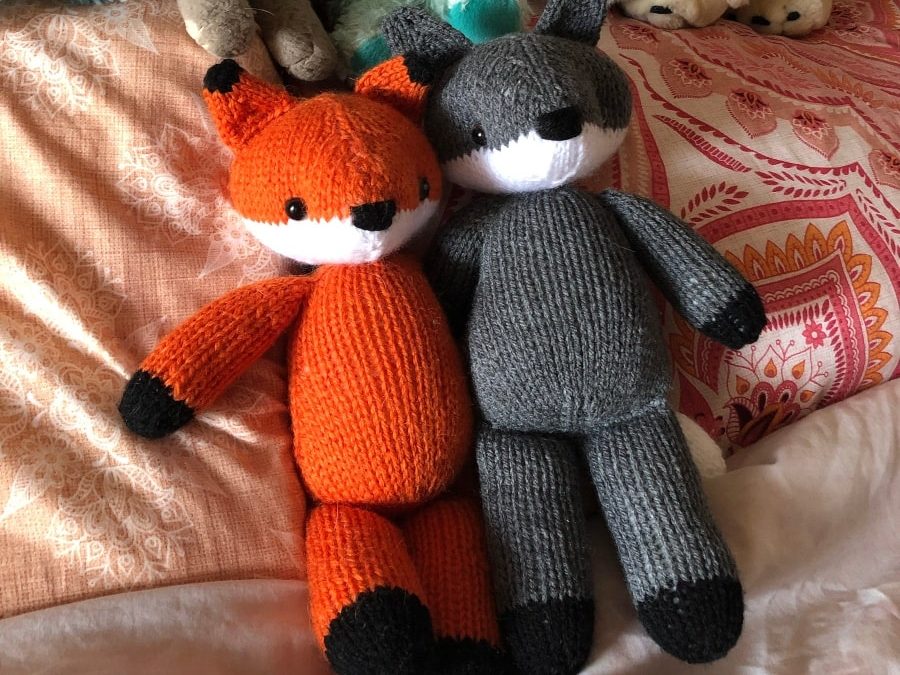In my psychology degree some years ago, we learned about Cognitive Behavioural Therapy (CBT). Within the cognitive component of CBT, and when I went through this process with my therapists at various points in my life, I learned about the many cognitive distortions that can occur.
For more information in cognitive distortions (also called unhelpful thinking styles), see the Centre for Clinical Interventions Resources.
One of these cognitive distortions is what one of my psychologists (a hypnotherapist) called “compare and despair” and what I’ve come to know in my own life as The Comparison Trap.
What is the Comparison Trap?
Comparing ourselves to others in a detrimental way is very human. It’s something we all do at some point (unless you’re a sociopath or psychopath, but even these individuals do it too, just in a different way).
It’s something that I’ve certainly struggled with. Comparing (and inevitably despairing) is something I’m still working on not doing myself.
When we compare ourselves to other people, the comparisons are often upward, which means that we’re looking at how much ‘better’ other people are doing, or what other people have or can do that we don’t have or can’t do at the minute.
To emphasise the difference between upward and downward comparisons, upward comparisons are when we compare in a way that puts others above us, as superior to us, and makes us lesser or just not as good as said person. On the other hand, downward comparisons are those that make others less proficient than you and yourself as superior in some way to said person. In this post I’ll be focusing on upward comparisons.
Either and any comparison, needless to say, is not helpful, and often leads to feelings of inadequacy or jealousy or depression (and anxiety from the pressure we may put on ourselves to have or be what they seem to have or seem to be), among other things.
I’d like to note here that feelings of superiority from downward comparisons can be just as damaging as upward comparisons; any time we use another human being to ascertain what that means about us, we’re at the mercy of external forces and other people, rather than fully embracing our personal power and feeling good from within.
Why comparison isn’t helpful
Sometimes it’s useful to keep in mind that when we compare ourselves and where we’re each at in life to other people and where they are, we’re comparing our internal world to other people’s external appearances/personas or circumstances. We don’t know what’s going on behind the scenes or inside that person, so comparing is a fruitless exercise.
Unfortunately, simply knowing that comparing ourselves to others is a pointless exercise isn’t enough for us not to engage in comparisons; this mental distortion can be so ingrained that it may have become a habitual response to years of comparison.
It may be helpful to remember that each of us is on our own life path, and we can’t accurately compare our unique journey to theirs. We can instead focus on ourselves and what we’re doing, and celebrate our individual lives and small victories within those.
This takes practice; I still find myself comparing (sometimes multiple times a day), but now I notice when I compare, and do a mental course correction by reminding myself that it’s not helpful, nice or fair on me to compare my inside to other people’s outside, and that my life journey is unique to me, and theirs is unique to them.
The potential reasons WHY we compare ourselves to others
Theodore Roosevelt said that comparison is the thief of joy. This makes a lot of sense: I can’t find any example of where I’ve compared myself to other people that’s felt joyful and expansive to my soul and life enhancing – only restricting and feeding the disempowering mental stories I have about myself.
In considering the reasons why I’ve compared myself to other people, I came up with the following:
1) Childhood comparison
Growing up I was often compared at a young age by some adults around me to other cousins, peers, and siblings. This set up in my mind a natural tendency to compare, often those upward comparisons.
The comparison between me and others my age turned into a habit I carried on, by negatively comparing myself as, say, a 27 year old to other 27 year olds and what we were both doing with our lives.
I took on what authority around me said when I was too young to know better and had no perspective filter, and started talking to myself in the same way that they did. This became a destructive habit.
2) Comparison for survival
I’ve noticed that as humans we are naturally comparing beings, probably stemming from way back in the day when it was actually useful to compare yourself to others for survival and thriving purposes (thank you to my partner for pointing the following example out to me on a walk one day) – if your vegetables that you relied on to keep you and your family alive during the winter months weren’t doing great, you’d likely look over to your neighbour’s garden and see their veggies doing better than yours (comparison), and then use that information from their garden and talking to them to get tips to grow better veggies so you could survive the harsh winter months. It’s like the whole fight or flight response – what started as a necessary and useful survival tool way back when is now an unnecessary component of cognition causing mental misery.
3) Natural human tendency
There are also natural human questions that we seem to have built into us like, “Why am I here?” “Who am I?” “Is who I am okay?” and most important to my point, the question, “Where do I fit in, in relation to others?”
We naturally like to know where we fit, and use comparisons to answer the question of belonging built into all of us. Like I said before, instead of being entirely useful in this day and age, they’re mostly useless superficial and detrimental comparisons.
Keeping comparisons as facts and not making them personal

The question about comparisons is, if we all make them as I’ve suggested, then how can we peacefully coexist with the comparison mindset and not end up feeling bad about ourselves and like we’re always falling short of something?
The key and answer for me has been to compare, let the comparison stories run in my mind like they naturally do, but then stop there.
I don’t make it personal.
I don’t let that inform what I think and how I feel about myself. I treat the comparison like a piece of objective information.
For example; the fact that other 27 year olds (and younger) had professional jobs and at 27 years old I was unemployed, was used by my inner critic as a way of tearing me apart about how incompetent and useless I was because I didn’t have a job, and why couldn’t I be like them, and then went on to harass me about how I was going to get behind in life and I was going to end up homeless and how no one would want to be in a relationship with me because I didn’t have a job, and yadeeyada.
On a side note it’s actually not possible for anyone to “get behind” in life (more on that in another post!).
Even worse than all that fear-mongering criticism was that I believed every word of it.
It took me some time, but with consistent practice and commitment to believing that I was okay no matter what, I now approach the unemployed at 27 situation as, I’m unemployed, they’re employed, it is what it is. No one is better or worse for being employed or unemployed in my mind. There’s no making these facts personal.
Another example I like to use is one of height or eye colour: my partner is just under 6 feet tall, and I’m 5 foot 2 and a half – he’s taller than me, that’s an objective fact. I don’t make it personal. He’s male I’m female, fact. He has brown eyes I have blue eyes, fact. These are just facts that I don’t make personal. I apply this thinking to any other comparison I make.
Them’s just the facts.
Final thoughts:
To sum up, comparison is indeed the thief of joy, but I would amend that quote and say, comparison is the thief of joy only when we make it personal.
If we don’t make it personal then it’s just a benign thought and may even be a vital clue to what we want in life for ourselves and how we’d like to be, that can gently be explored rather than taken on as undeniable fact that we’re somehow a lesser human being.
We’re then free to compare, as the human mind does, without making it personal or fuelling disempowering stories about ourselves.
We can make this a useful mental exercise after all.
Let me know what you thought of the comparison trap in the comments below or reach out to me at [email protected].
I’d love to hear your quiet thoughts!
Be kind to yourself,

P.S. For extra content, updates and other good stuff, feel free to join The Quiet and Curious folk community by signing up to the email newsletter below:



